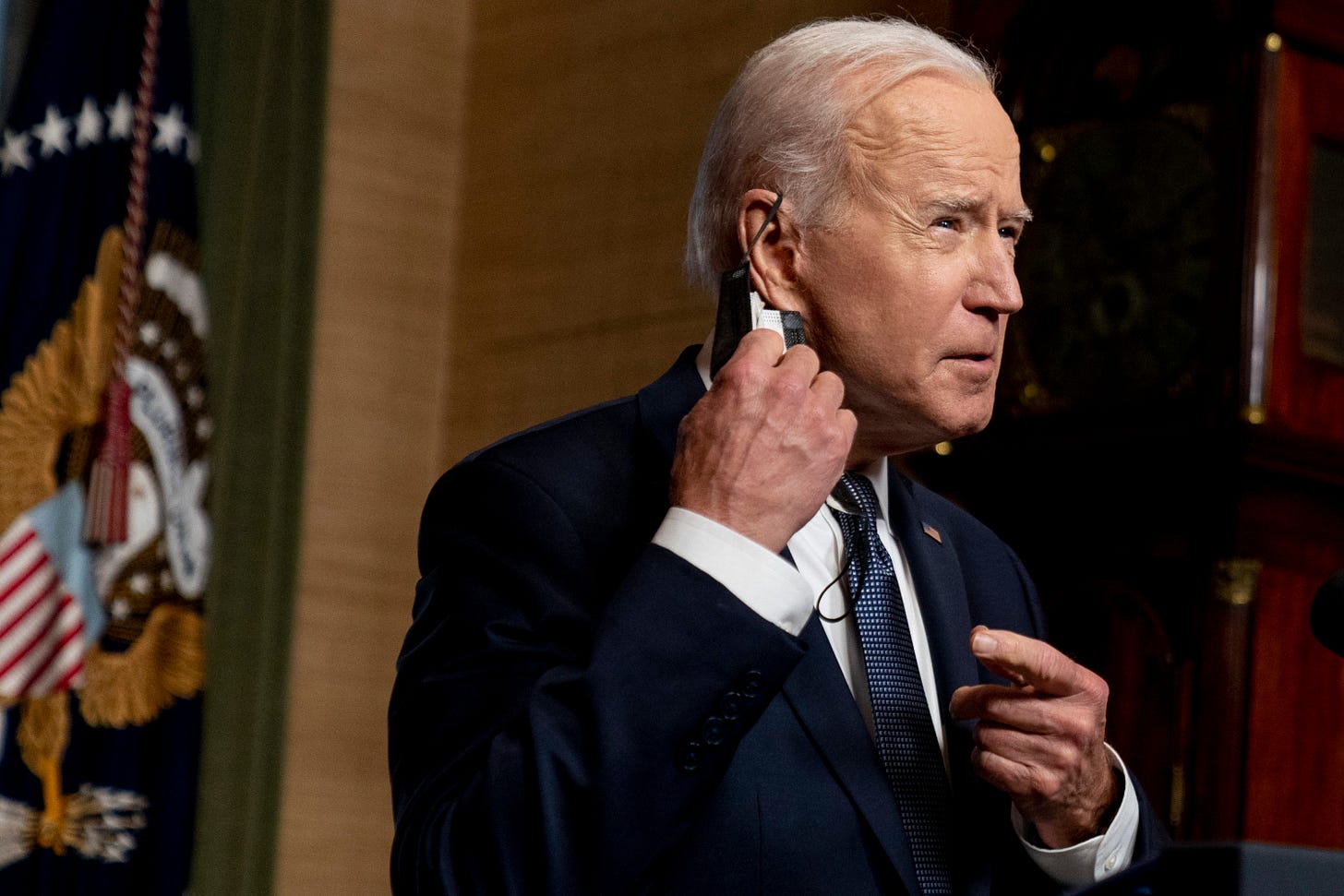Whatever Happened to National Honor?
Our foreign policy decisions aren’t just about our friends and enemies—they’re also about who we are.

If it is true that imitation is the highest form of flattery, then Donald Trump and Mike Pompeo must be blushing. Whereas some may have thought Trump was a fluke, the Biden administration is continuing some of his worst instincts and habits on the world stage. The debacle in Afghanistan has demonstrated that a large number, perhaps a majority, of senior politicians—including at least the last two administrations—don’t care about national honor correctly understood. But a great country, especially a hegemon, cannot function without honor.
Trump had no concept of national honor because he had no understanding about honor as a concept. He couldn’t grasp the notion that any entity, including a country, would be dedicated to an immaterial purpose, something other than money and security; that the United States should conduct according to certain rules. Nor could he appreciate that hegemonic power comes with global responsibility. Floundering in his ignorance, he did not want to dishonor America. He wanted to restore it, hence his “Make America Great Again” slogan. Characteristically crude and vicious, he wanted to do it crudely and viciously. He understood national honor closer to how Saddam Hussein or Augusto Pinochet would define it than Abraham Lincoln or Theodore Roosevelt would. Honor to him was the ego that stems from wealth and power, not goodness.
President Biden, who said in his inaugural address, “this is a great nation, and we are a good people,” signaled a return to national honor. He was, if unintentionally, paraphrasing an erroneous quotation of de Tocqueville (erroneous because he never said it, not because it is false) which previous presidents have repeated: “America is great because America is good.” This, for the United States, if not for all countries, is a key element of national honor rightly defined.
Yet Biden’s actions seem to have been driven by a different understanding. Even if the withdrawal from Afghanistan were necessary, even if it were overdue, there was nothing good about its execution. There is nothing good about the fact that, weeks after the last American forces and diplomats departed, Americans are still fleeing Afghanistan on Qatari flights(except the mere fact that they got out). There is nothing good about the fact that unknown patriotic and loyal Afghans and their families will now be at the mercy of the merciless Taliban.
It’s not good for them and it’s not good for us.
The world spent the four years of the Trump administration wondering if America is still good enough to be great. For many of these countries—for Taiwan, South Korea, Japan, Israel, Kosovo, Ukraine, and the Baltics—this is a question of life and death. But should they be paying more attention than we are?
Within nine months, one president sent an insurrection to the Capitol, formally and finally breaking any pretence of loyalty to democracy and the rule of law, and the other cleared the way for an insurrection of terrorists to descend on the presidential Arg in Kabul. The Afghan leaders we left behind—the ones who rushed to the frontlines to build their country and help our uniformed and civilian servicemembers on the guarantee that we would not leave their fates to the Taliban—now face exactly the fate we promised they would be spared from, and which they worked so hard to avoid.
Thucydides observed that states go to war over “rational fear, honor, and profit.” We went to war in Afghanistan out of fear, but we lost our honor.
Ronald Reagan, one of the presidents who liked to use the apocryphal Tocqueville quote, said during his 1992 Republican National Convention address, “my fondest hope for each one of you—and especially for the young people here—is that you will love your country, not for her power or wealth, but for her selflessness and her idealism.”
His successor, the current incumbent of the office, said of taking Afghan refugees in 2010, “fuck that, we don't have to worry about that. We did [not take refugees from] in Vietnam. Nixon and Kissinger got away with it.” Biden was wrong on multiple counts.
When Saigon fell to the North Vietnamese, Nixon had already won reelection and resigned in disgrace. His immediate successor, Gerald Ford, was in such a position, and signed a billfunding refugee programs for Vietnamese and Cambodians. Then-Sen. Joe Biden was one of 92 senators who, the same month, voted for a resolution “to welcome the latest refugees to our shores.”
But Biden’s remark also reveals a deeper misunderstanding: The cynicism that made Nixon think he could get away with dishonor brought down his presidency and disgraced him. Kissinger complained in his book, Diplomacy, that, even before Watergate, Nixon’s directions were frequently slowed down or stopped by his subordinates because they were too amoral or immoral for the honorable people of America to stomach. Nixon’s cynicism and selfishness didn’t lose Vietnam, but it did lose Nixon. Once a proud man with a stellar story, his turpitude besmirched the country and he died in disgrace.
During his inaugural address, Joe Biden said, “to overcome these challenges—to restore the soul and to secure the future of America—requires more than words.” He was right. It requires honor. It requires the courage and commitment to act in accordance with principles, rather than just to speak them. How long can we keep dishonoring ourselves before we become dishonorable?

